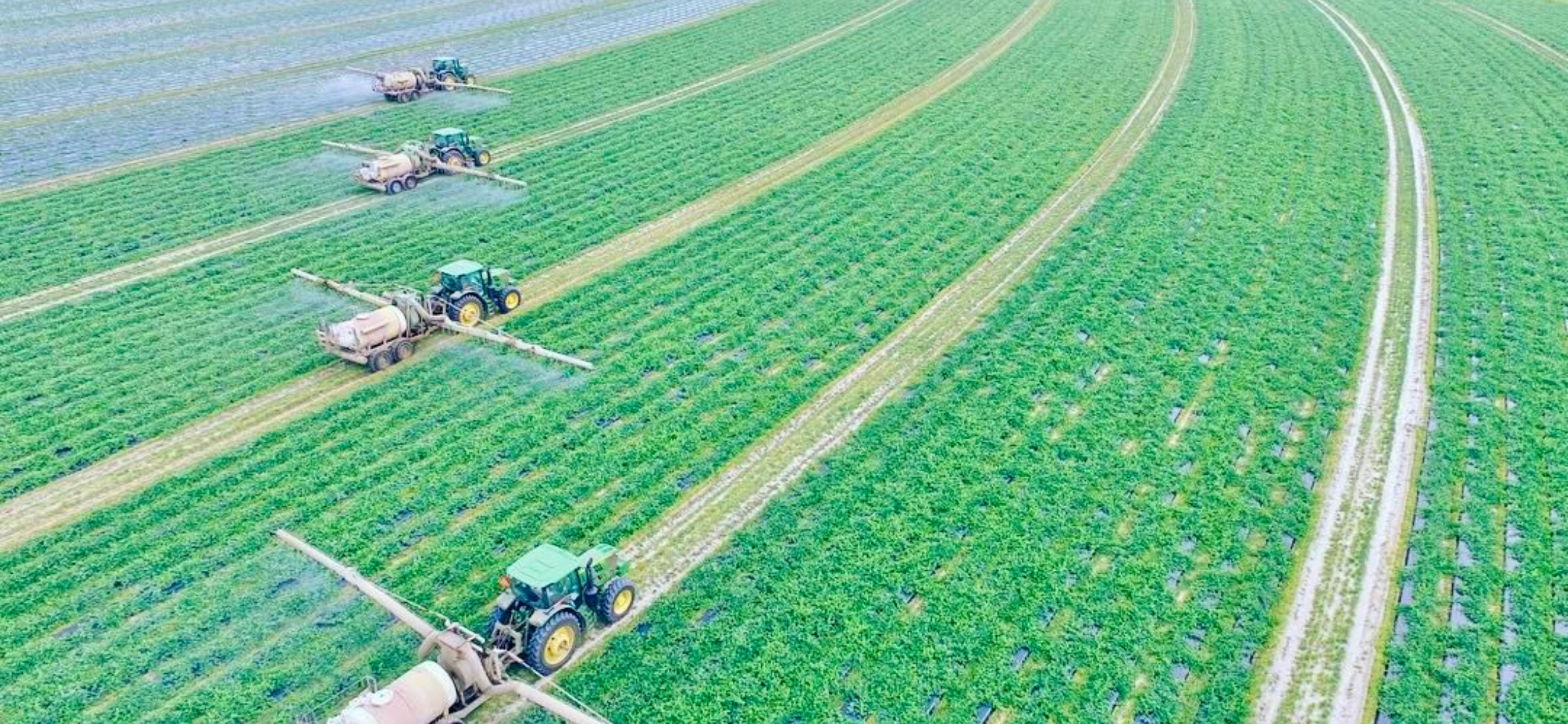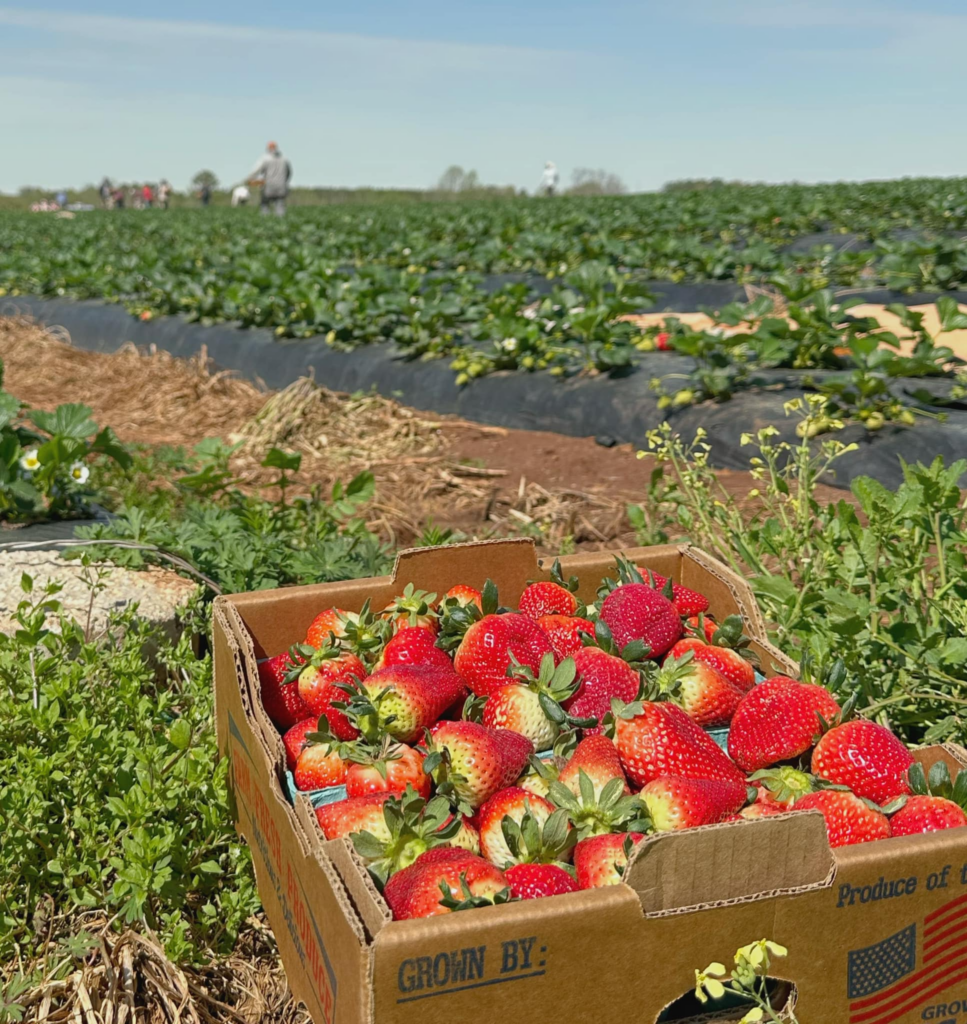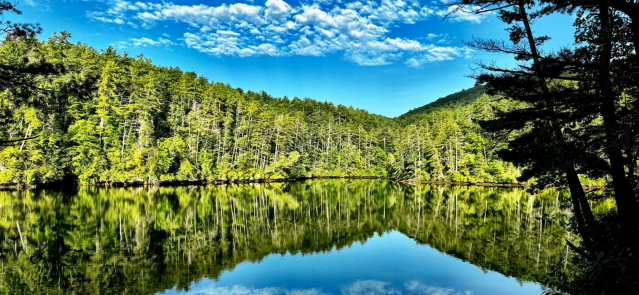Stay ahead of the curve as a political insider with deep policy analysis, daily briefings and policy-shaping tools.
Request a DemoAgriculture community hopes to keep farmland from falling into ‘adversarial’ hands

Tractors in the field taking care of baby melons in Tifton. (Credit: Lewis Taylor Farms)
The Gist
In the past decade, foreign investors have quietly purchased tens of millions of acres of American farmland, sending foreign ownership skyrocketing.
Foreign-held farmland grew nearly 16 million acres during that time, with land used for growing crops accounting for the biggest purchase, followed by forestland. That’s 4% of Georgia’s 37 million acres.
With foreign land purchases increasing and tensions growing over national security, Georgia lawmakers passed a bill in the final days of the 2024 legislative session that bans foreign adversaries from buying farmland, a vital part of Georgia’s economy. Senate Bill 420, which was sponsored by Sen. Jason Anavitarte, now awaits Gov. Brian Kemp’s signature.
What’s happening
SB 420 prohibits Georgia farmland and other agricultural lands from being sold to countries deemed by the federal government to be adversaries of the United States. It also prevents those countries from buying property within 10 miles of Georgia’s 13 military bases. It does not, however, prevent individuals from other countries from buying homes or other personal property, backers of the bill said.
Georgia Rep.Clay Pirkle, R-Ashburn, a member of the House Agriculture & Consumer Affairs Committee, told State Affairs that foreign ownership of U.S. land is “a national security issue.”
“This bill protects farmland, agricultural production from getting into the hands of those that are openly hostile to the United States. We should protect the lands that we use to grow food and fiber and trees for the state, the nation and the world,” said Ashburn.
Georgia’s agriculture czar endorsed the pending bill.

“We do need to update our laws to address issues related to those that may be adversarial to the United States,” Agriculture Commissioner Tyler Harper told State Affairs. “Across the political spectrum and across the country, the majority of Americans believe that we need to ensure that we’re protecting American land for those that are Americans and legal citizens. And this [legislation] will do the same here in Georgia to prevent those who want to do us harm and that will utilize it for all practical purposes against us.”
The bill lawmakers passed this session also pertains to corporations with headquarters in adversarial countries or businesses that have a 25% stake in a company trying to buy land but that have ties to U.S. adversaries. Governments in countries deemed hostile also are prevented from buying Georgia land used for farming, forestry or other agricultural uses under the new bill.
In Georgia, where agriculture is the top industry, 1.26 million acres is foreign-owned, that’s slightly less than 4% of Georgia’s 37 million acres.
Canada, Germany and other European countries own some 619,930 acres of Georgia farmland.Over 658,000 of those acres are owned by unnamed foreign investors listed simply as “other” in federal data. Their specific identity – and whether they’re adversaries – is unknown. However, a National Public Radio report noted that Chinese entities own land in four Georgia counties. They have 956 acres in Newton County, 652 acres in Henry County, 282 acres in Jackson County and 82 acres in Clayton County.
Pirkle noted that with the exception of North Carolina, every state surrounding Georgia has passed some form of legislation addressing foreign land ownership.

“It’s not about my backyard, but it is a broader policy implication. Productive agricultural land should be protected,” Pirkle said. “This is just a proactive measure to make sure that [not only] Irwin County, Turner County or Tifton in my area are protected, but the state and the nation is protected. I have no impact on national policy, but in state policy, we should do what we can to protect this vital resource.”
Pirkle has been working for a couple of years to get a bill through the Legislature. He is a fourth-generation farmer whose family has a 1,000-acre cattle farm where he also grows butter beans, cotton, peanuts and corn in south Georgia’s Irwin County. Pirkle introduced a measure last year that failed and worked behind the scenes this legislative session to get a bill passed.
“We took our time,” Pirkle said. “It took us two years to get the language right. It is not overly prescriptive as it relates to those people that would like to come into the United States that are fleeing oppression around the world.”
Why it matters
Over the years, American land acquisition by foreign entities and their subsequent actions has raised eyebrows and ire.
“They want to control our technology. They want to control our agriculture,” state Sen. Brandon Beach recently told Georgia’s agriculture committee during the presentation of his bill, Senate Bill 132, which unanimously passed through the ag committee but languished in the Rules Committee.
While there’s been no known purchases recently by foreign adversaries in Georgia, the issue of preserving and protecting farmland is “exceedingly popular in the ag community,” Pirkle said.
“We don’t know if we have a problem right now,” Rep. Robert Dickey, R-Musella, chairman of the House Agriculture and Consumer Affairs Committee, told State Affairs. “But this will hopefully flush out any that have done this. A lot of Americans are very concerned about our national security right now.”
Dickey added: “We want to take control and keep control of our U.S. farmland. Georgia’s farmland industry is strong. We don’t want to jeopardize it and put it in the hands of foreign nationals who work for these adversarial governments.”
Pirkle noted that both chambers worked hard to get legislation passed.
“I think this is a great start,” said Pirkle, who won’t be returning to the House next year. “We’ll have a season where we can marinate over what we’ve done. Every single year, we pass additional laws. Every single year we add to Georgia code. Sometimes we take from Georgia code, but it is an evolving process. So I’m sure we will look at perhaps ways that that law could be strengthened. Put some more guardrails up but right now, let’s see what it does. I would anticipate that, going forward, we might tweak this law as well.”
During the legislative session, a representative from the Georgia Chapter of the Council on American Islamic Relations cautioned lawmakers about hastily passing such measures.
Megan Gordon, the council’s policy director, cited Florida’s ongoing litigation over its new law, which places tougher restrictions on Chinese individuals. Chinese buyers could potentially face up to five years of imprisonment and fines of $5,000, while sellers might face up to a year in prison and fines of $1,000. Florida’s legislation also prohibits individuals “domiciled” in China, lacking U.S. citizenship or permanent residency, from owning property in the state.
Four Chinese citizens and a real estate brokerage have sued Florida, calling the law“xenophobic.”
What’s next?
SB 420, which Georgia lawmakers hail as a good “guardrail” for protecting Georgia’s No. 1 asset, awaits the signature of Gov. Kemp. After sine die, which was March 28, Kemp has 40 days to review legislation before signing them into law or vetoing them.

Foreign agricultural landholdings in Georgia
Total Georgia acres: 36.8 million
Privately held farmland: 28.35 million
Foreign-owned farmland: 1.26 million
Percentage of foreign-owned land to private land: 4.4%
Note: Includes ag and non-agricultural land
Largest foreign investors in Georgia farmland
Germany: 287,651 acres
Canada: 243,653 acres
United Kingdom: 41,393 acres
Netherlands: 39,417 acres
Italy: 7,816 acres
Others: 658,522 acres
Total: 1.28 million acres
As of Dec. 31, 2022
Have questions? Contact Tammy Joyner on X @lvjoyner or at [email protected].
And subscribe to State Affairs so you do not miss any election news you need to know.
X @StateAffairsGA
Facebook @StateAffairsGA
Instagram @StateAffairsGA
LinkedIn @StateAffairs
Biden awards Medal of Honor to Civil War train raiders
President Joe Biden is honoring two Civil War privates, whose remains lie in Chattanooga’s National Cemetery, with the Medal of Honor on Wednesday for conspicuous “gallantry and intrepidity” for their role in the Great Locomotive Chase of 1862. Philip G. Shadrach and George D. Wilson were part of Andrews’ Raiders, a 24-man group of U.S. …
5 tips to help you have a blast this July 4th holiday
Cheeseburgers? Check. Sparklers? Check. Red, white and blue banners? Check. Hit the bank? Not yet. Why? The answer to that last question is simple: Banks and post offices are closed all day on Thursday in observance of the Fourth of July holiday. We suspect that if you didn’t know that, there are probably a few …
Georgia launches statewide retail, cyber crime unit amid battle with Internet trade group over ways to curb online thefts
The Gist While updates to Georgia’s law governing retail and cyber crimes are in legal limbo, a statewide unit created to combat those illegal activities is now in place. The Organized Retail and Cyber Crime Unit launched Monday. Meanwhile, an internet trade group called NetChoice last month sued Georgia over new amendments to the state’s …
State committee investigates professional license delays, inefficiency
The Gist Business owners and professionals across the state are frustrated by the lack of efficiency when applying for professional licenses. This summer, state legislators have decided to dig deep to find the necessary solutions. What’s Happening State legislators this week held the inaugural meeting of a joint blue-ribbon committee to investigate problems within the …




